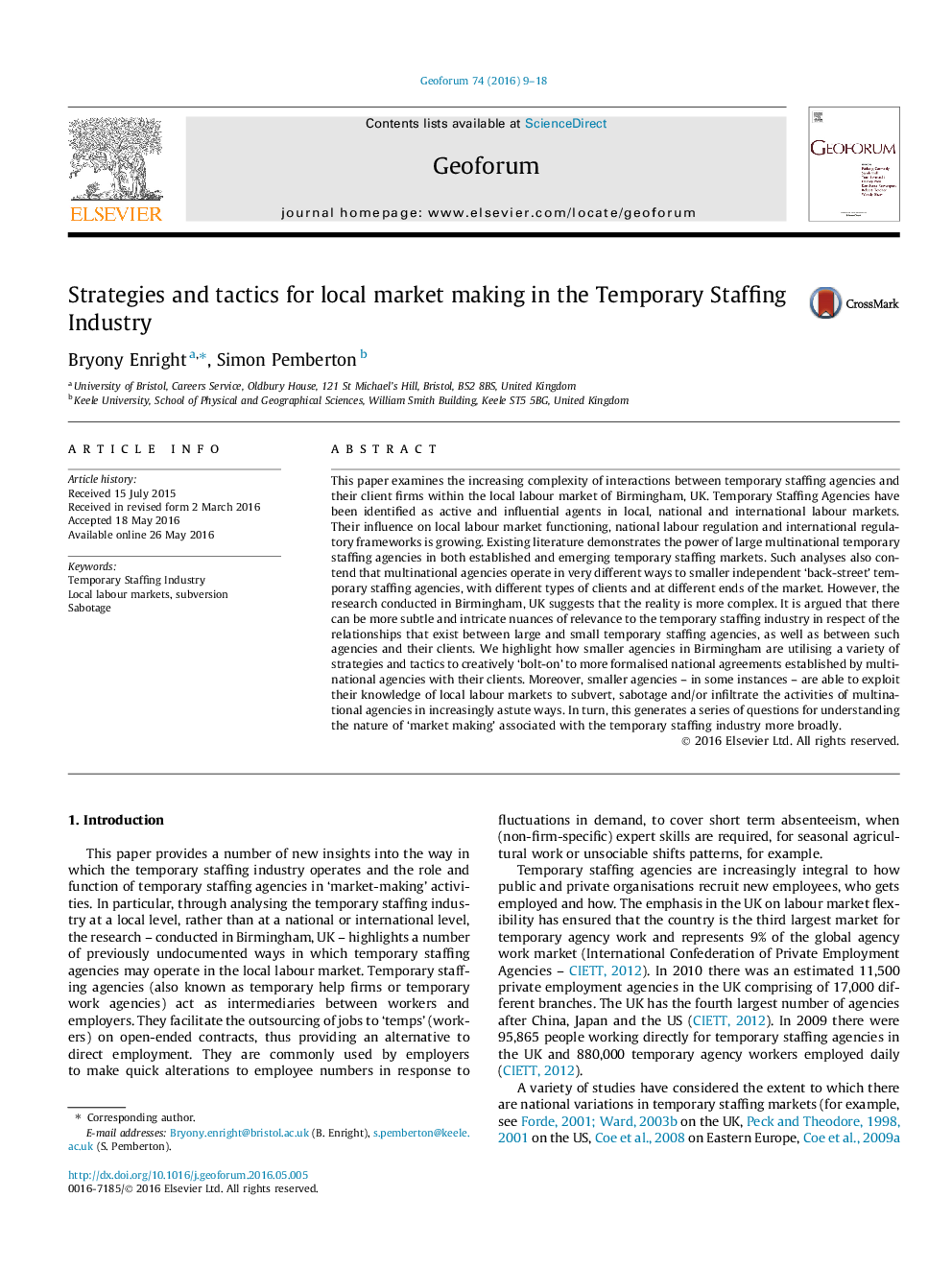| Article ID | Journal | Published Year | Pages | File Type |
|---|---|---|---|---|
| 5073438 | Geoforum | 2016 | 10 Pages |
â¢Illustrates how the local labour market is an important arena for market making.â¢Analyses how smaller agencies use tactics to develop new markets and create demand.â¢Identifies how smaller agencies are changing competition amongst larger agencies.â¢Explores the local relationships that regulate the temporary staffing industry.â¢Highlights how tactics of competition go beyond cost cutting and margin trimming.
This paper examines the increasing complexity of interactions between temporary staffing agencies and their client firms within the local labour market of Birmingham, UK. Temporary Staffing Agencies have been identified as active and influential agents in local, national and international labour markets. Their influence on local labour market functioning, national labour regulation and international regulatory frameworks is growing. Existing literature demonstrates the power of large multinational temporary staffing agencies in both established and emerging temporary staffing markets. Such analyses also contend that multinational agencies operate in very different ways to smaller independent 'back-street' temporary staffing agencies, with different types of clients and at different ends of the market. However, the research conducted in Birmingham, UK suggests that the reality is more complex. It is argued that there can be more subtle and intricate nuances of relevance to the temporary staffing industry in respect of the relationships that exist between large and small temporary staffing agencies, as well as between such agencies and their clients. We highlight how smaller agencies in Birmingham are utilising a variety of strategies and tactics to creatively 'bolt-on' to more formalised national agreements established by multinational agencies with their clients. Moreover, smaller agencies - in some instances - are able to exploit their knowledge of local labour markets to subvert, sabotage and/or infiltrate the activities of multinational agencies in increasingly astute ways. In turn, this generates a series of questions for understanding the nature of 'market making' associated with the temporary staffing industry more broadly.
